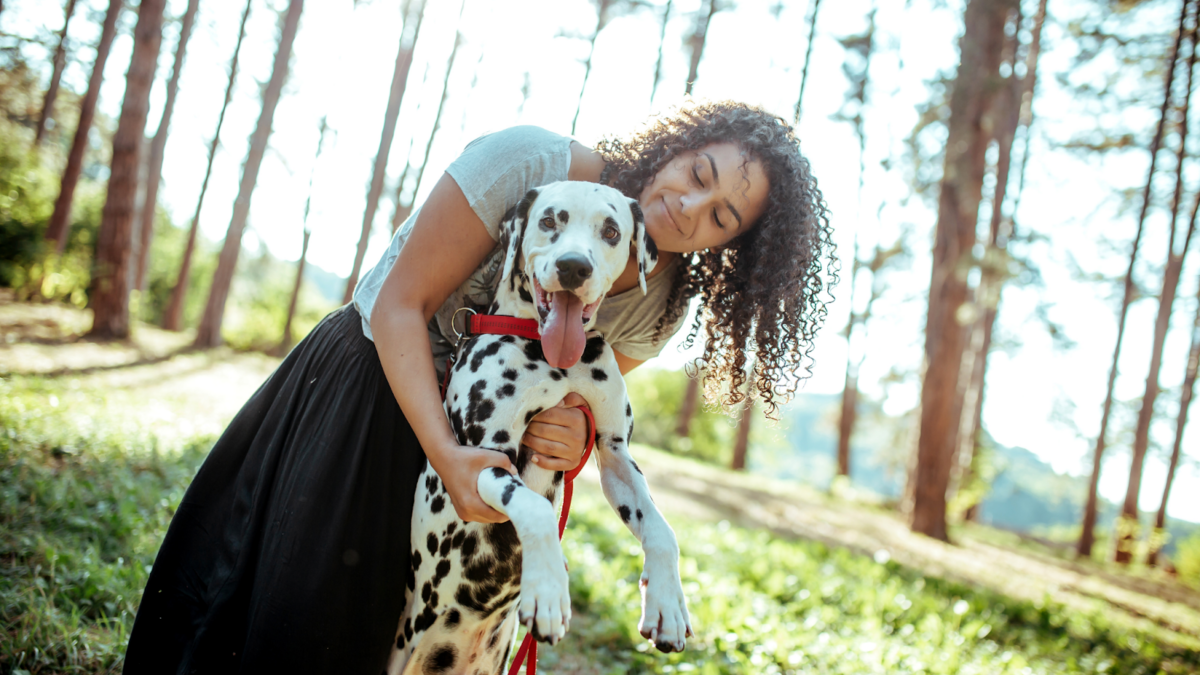When considering a Dalmatian as a family dog, it’s essential to look at both the breed’s characteristics and the needs of your family. These iconic dogs are known for their distinctive spotted coats and were historically used as carriage dogs, which may contribute to their energetic nature.
As a dog owner, seeking advice from experienced Dalmatian owners and trainers, like Laurie C. Williams CCUI CDTI, can offer valuable insight. Dalmatians can be great with children, given their playful and loyal disposition, but it’s crucial to remember that their high energy levels often require an active family environment.
Dalmatians are also social creatures that, when properly socialized, can get along with other animals and be vigilant watch dogs. They are not typically aggressive, which can make them suitable for homes with multiple pets. However, as with any breed, there are specific health issues to consider – in Dalmatians, these include potential for deafness and urinary stones. They require consistent care and grooming, as well as a considerable amount of exercise to keep them happy and healthy. Before bringing a Dalmatian into your home, consider the breed’s need for companionship, stimulation, and an owner who can meet their high activity level.
So, Is The Dalmatian A Good Family Dog?
Dalmatians can be excellent family dogs for the right household. They thrive with active families who can commit to daily exercise and address their specific needs, such as potential deafness or dietary requirements for bladder stones. Without meeting these needs, families may struggle with a Dalmatian’s high energy and health issues.
The Dalmatian can shine as a family dog in the right setting. Active families who love to run, jog, and hike will find that Dalmatians are a match made in heaven. They thrive with plenty of exercise and will gladly accompany you on your outdoor adventures. Remember, Dalmatians need to burn off energy, and when they do, they’re a delight at home.
However, if you’re often busy with limited time to engage with a pet, a Dalmatian might not be the best choice. They’re not the type to lounge around all day. Without ample exercise, they can become hyperactive.
Your Dalmatian might inadvertently knock over small children during play due to their boisterous energy, so homes with older kids might be more suitable.
It’s essential to note that Dalmatians have a strong prey drive. Early socialization with other animals is crucial to help them curb their chasing instincts. If you have other pets, introduce them early to your Dalmatian. In many cases, they fit in well with other dogs.
When considering bringing a Dalmatian into your family, it’s essential to be aware that many can be born deaf. In fact, up to 30% of Dalmatians experience deafness, so it’s vital to be equipped with strategies for training a deaf dog to ensure they integrate well into family life.
Ultimately, whether a Dalmatian makes a good family dog hinges on your family’s lifestyle. For those families who can meet their needs, Dalmatians are more than just pets; they’re active, affectionate family members. If your lifestyle aligns with these needs, a Dalmatian could be a wonderful addition to your family.
Are Dalmatians Good With Other Animals?
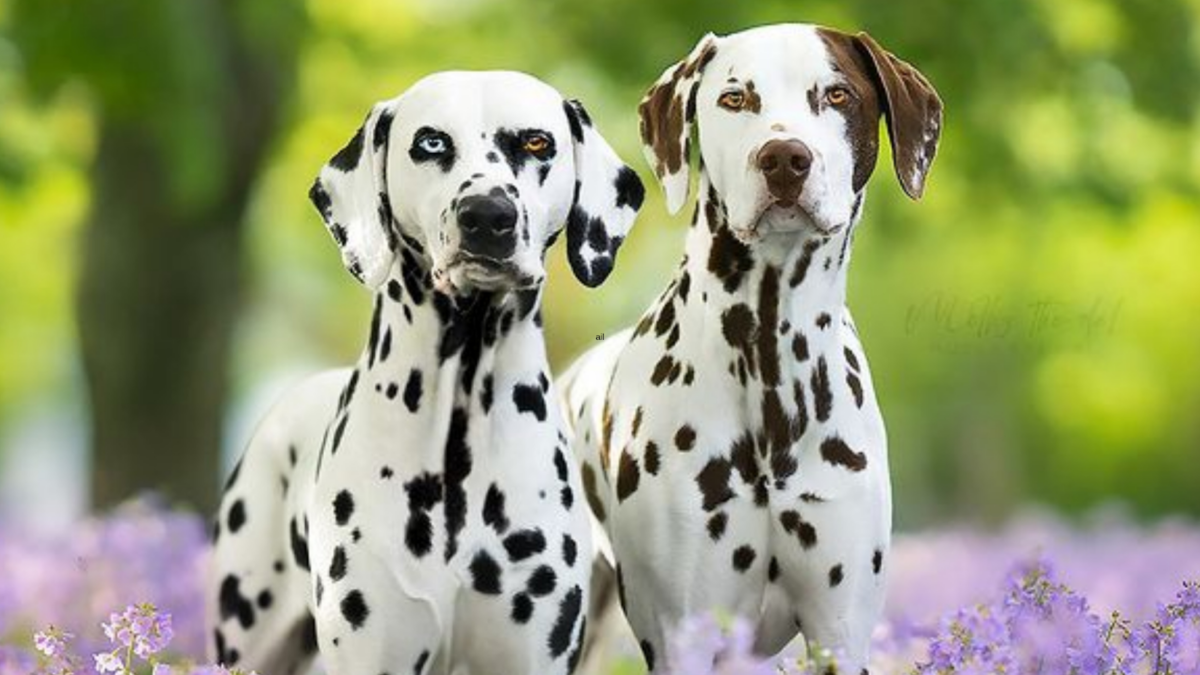
If you already have pets at home and you’re thinking about adding a Dalmatian to your family, it’s natural to wonder how they’ll get along with other animals. Good news! Dalmatians can be quite friendly with other pets, especially if they’re raised with them from puppyhood.
Socialization is key. If you introduce your Dalmatian to different animals when they’re young, they’re more likely to be comfortable around them later on.
Here are a few tips to help your Dalmatian play nice with other furry friends:
- Start early: Socialize your Dalmatian with a variety of animals early on to encourage a positive temperament.
- Supervise interactions: Always keep an eye on your Dalmatian when they’re meeting new animals.
- Positive reinforcement: Reward your Dalmatian with treats and praise when they behave well around other animals.
- Consistent training: Keep training sessions regular to reinforce good behavior.
Remember, each Dalmatian has a unique personality. Some may love having animal companions while others might prefer to have all your attention to themselves. Be patient and attentive, and watch for signs of how your Dalmatian is feeling during animal interactions.
If they seem stressed or aggressive, it might be a good idea to consult with a professional trainer. With proper introduction and training, Dalmatians can be a joyful addition to a home bustling with other pets.
Are Dalmatians Good Guard or Watch Dogs?
When considering if Dalmatians make good guard or watch dogs, it’s important for you to consider their temperament and natural instincts.
Are Dalmatians Aggressive?
Typically, Dalmatians are not inherently aggressive; they’re known for having a friendly and outgoing nature. However, their history as coach dogs means they have an innate sense of territory and may act protective if they perceive a threat to their home or family. This protective behavior can sometimes be mistaken for aggressiveness, but with proper training and socialization, they can learn to distinguish between normal and threatening scenarios. Dalmatians can be attentive and alert, which are good traits for watch dogs.
Pros and Cons Of Getting A Dalmatian
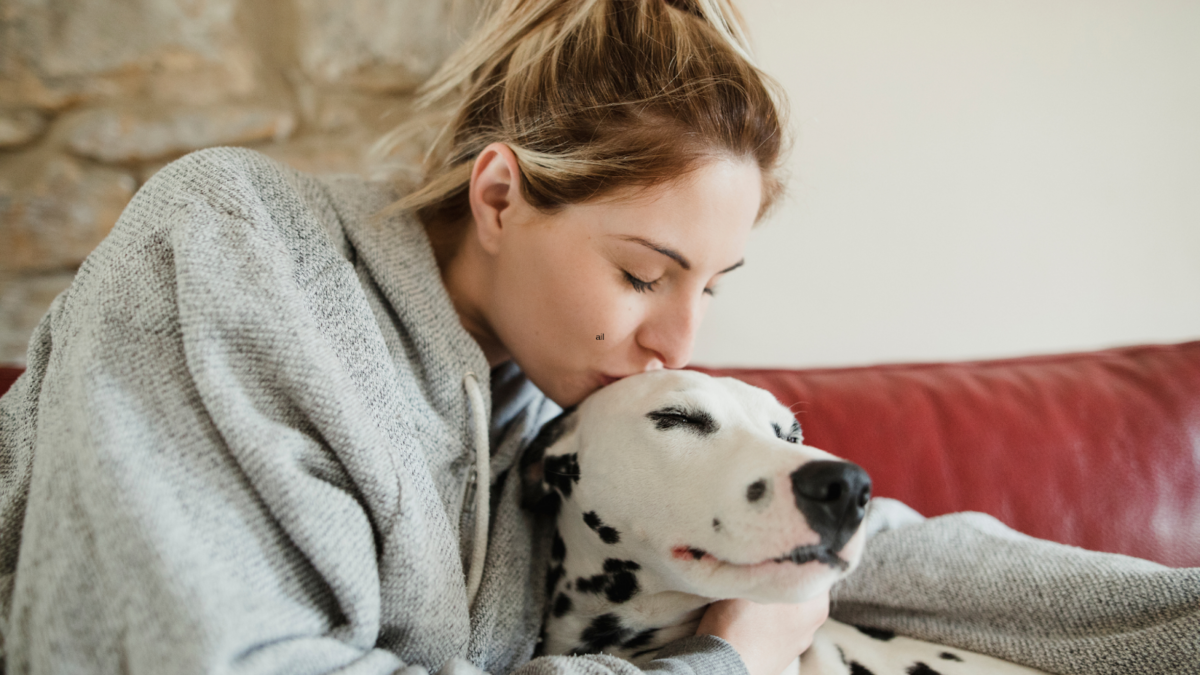
When you’re thinking about whether a Dalmatian would be a good fit for your family, it’s smart to weigh the positives and the challenges.
Pros:
- Energetic Companions: Dalmatians are known for their energy, making them great for active families.
- Intelligent: These dogs are quite smart, so training can be a rewarding experience.
- Protective: With a Dalmatian, you may feel an extra sense of security as they are loyal and protective of their families.
- Social: If you like meeting people, having a Dalmatian can be a conversation starter.
Cons:
- Health Considerations: Dalmatians can have health issues like deafness and urinary stones, which could result in vet visits.
- Shedding: They shed a lot! If you’re not a fan of finding hair around, this might be a challenge.
- Exercise Needs: Dalmatians need a lot of exercise. Without it, they may become bored and destructive.
- Size and Space: They’re not small dogs. You need space for them to move around comfortably.
Before deciding, make sure you have the time and energy a Dalmatian requires. They can be the most loyal friends, but they need your care and attention too!
Temperament
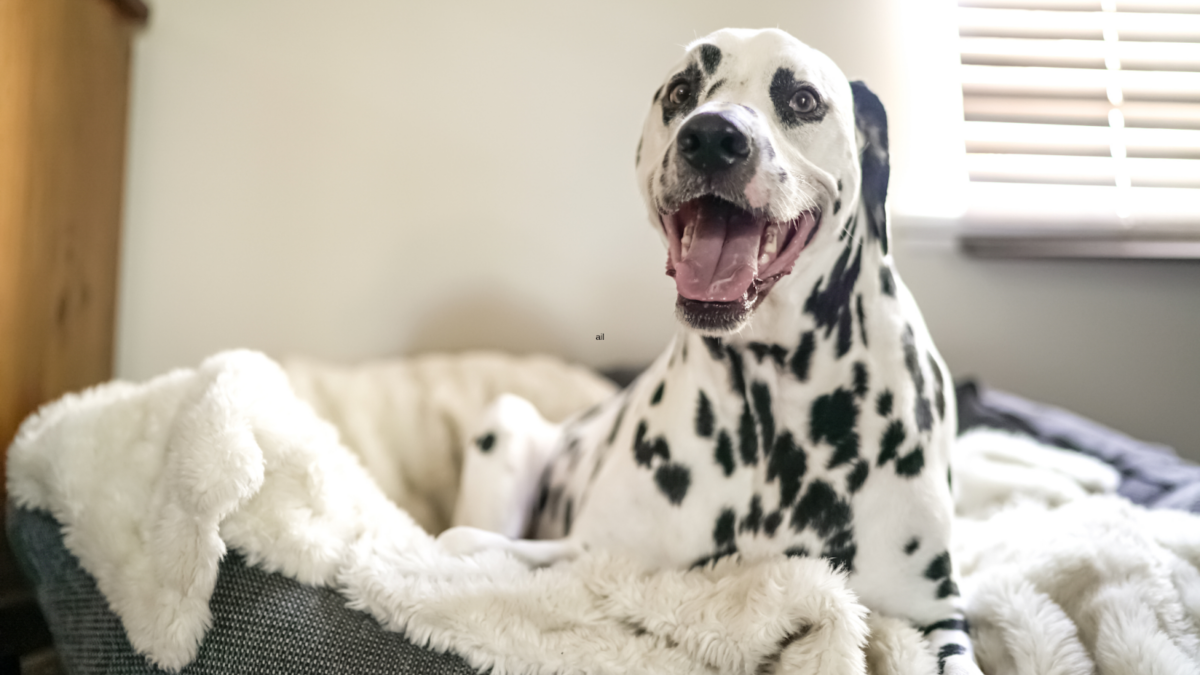
When you’re considering a Dalmatian as a family dog, it’s essential to understand their temperament. These dogs are known for their high energy and intelligence, but those traits come with challenges in training and managing their playful spirit.
Playfulness and Energy
Dalmatians are incredibly playful and full of energy. They are the kind of dogs that really enjoy a good run in the park and playful interaction with their family members. If you’ve got kids or enjoy being active, a Dalmatian can be a great fit. Remember, though, that with this high energy comes the need for ample exercise – they’re not the kind to lie around all day.
Intelligence and Training
Now, let’s talk smarts. Dalmatians are quite intelligent, which means they pick up commands and tricks with the right approach. Training should start early, using positive reinforcement; these dogs respond well to treats and praise. However, be aware they can show a stubborn streak. Consistency and patience in training are key. Teach them the rules, and they’ll follow, but bend the rules, and they might just test your limits.
Coping Dalmatian Breed-Specific Health Issues
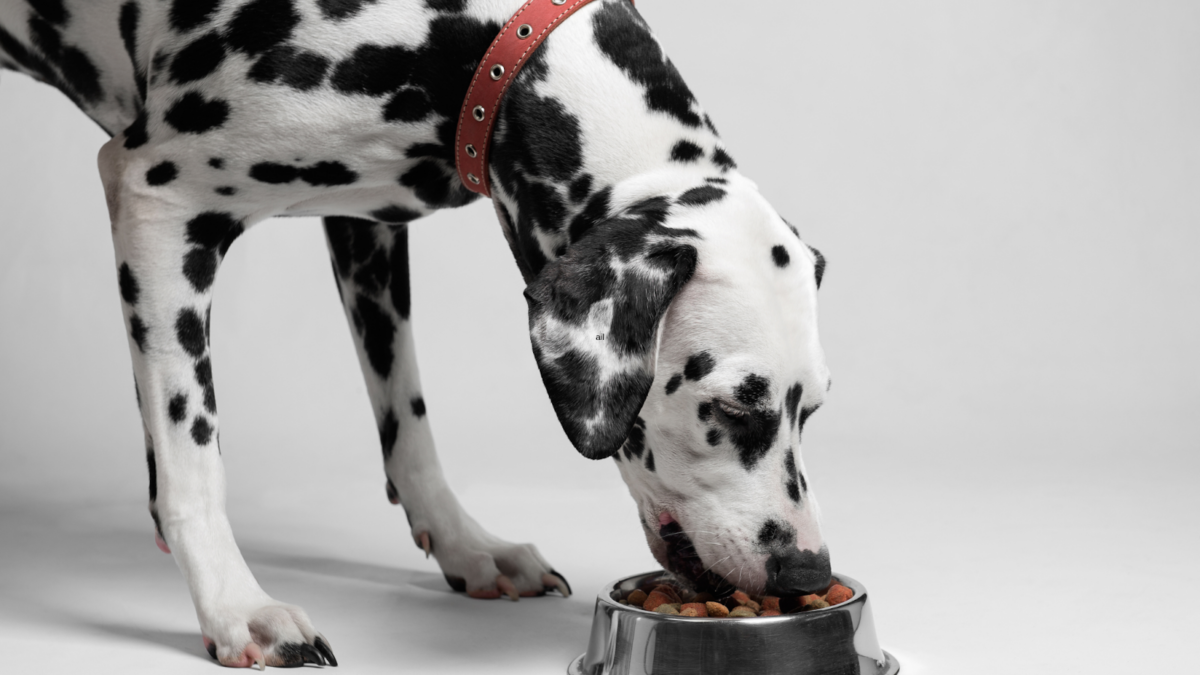
If you have your heart set on buying a Dalmatian puppy, then it’s essential to be prepared for some common health issues that may lead to special needs for your dog.
Deafness
You might already know that Dalmatians can be prone to hearing loss. To manage this, it’s essential to have your Dalmatian’s hearing tested early. If hearing issues are detected, you’ll need to adapt by using hand signals or a vibrating collar for training and communication.
Special Diets and Bladder Stones For Dalmatian
Bladder stones are another health concern unique to Dalmatians. Your dog may need a special diet to prevent these. This diet often includes low purine foods to help reduce the risk of stones forming. Always consult with your vet to find the best diet plan for your Dalmatian.
- Regular check-ups;
- Low purine foods like eggs and cottage cheese; and
- Plenty of fresh water to stay hydrated.
Remember, taking these steps can help your Dalmatian lead a happy and comfortable life alongside you and your family. And always reach out to your vet with any concerns or questions about your dog’s health. They’re your best resource for keeping your Dalmatian healthy!
Exercise and Activity Level
Dalmatians are high-energy dogs needing regular exercise to keep healthy and happy. They’re perfect companions if you love staying active and can engage with them in their exercise routine.
Daily Exercise Needs
For a full-grown, healthy Dalmatian, around two hours of exercise a day is typically the best. This can include various activities such as walking, jogging, or playing in the yard. Dalmatians have lots of stamina and thrive on activities that engage both their body and mind. Daily exercise isn’t just a nice-to-have; it’s a must to prevent boredom and to manage their high energy levels.
Suitability for Active Families
If your family is active and enjoys outdoor activities like hiking or running, a Dalmatian could be your ideal pet. They’re great for active households where they can join in on the adventures. Regular activities that match their energy level, such as hiking, running alongside a bike, or playing fetch, are excellent ways to keep them mentally and physically fit. Remember, Dalmatians are not suited to a sedentary lifestyle, so having the time and energy for their exercise needs is crucial.
Socialization and Behavior
When you bring a Dalmatian into your family, your approach to socialization and understanding their behavior are key to a harmonious household. These spotted friends are known for their energy and intelligence, which means they respond well to early and consistent training.
With Children and Other Pets
Children: Dalmatians can be great with kids if they’ve been properly socialized. It’s important to teach your children how to interact respectfully with your dog to prevent any accidental nipping or rough play.
- Keep in mind: Supervision is vital when dogs and young children are together.
- Pro tip: Encourage gentle interactions to help form positive relationships.
Other Pets: If raised with them from a young age, Dalmatians usually get along with other pets in the home. However, their high prey drive means that smaller animals need to be introduced carefully.
- Remember: Consistent boundaries and introduction techniques are key.
- Note: Some Dalmatians may have a stronger chase impulse than others.
Socialization Needs
Your Dalmatian will need regular socialization to develop a calm and confident temperament. Exposing your dog to different people, animals, and environments in a positive way helps prevent overly cautious or reactive behaviors.
- Socialization tip: Short, positive experiences are more effective than long, overwhelming sessions.
- Barking: Proper socialization can help manage a Dalmatian’s tendency to bark at unfamiliar things.
- Factor in: Timely socialization greatly reduces the chance of fearful or aggressive behaviors as your Dalmatian matures.
Care and Grooming
Dalmatians are stunning dogs, but they do shed quite a bit and love to stay active. Let’s break down what you need to know to keep your Dalmatian happy and looking sharp.
Shedding and Coat Maintenance
Your Dalmatian’s coat is short, sleek, and shiny, but don’t let that fool you — they shed year-round. Regular brushing, at least three times a week, will help manage the shedding and maintain their lovely coat. This routine not only keeps loose fur under control but also distributes their skin’s oils, keeping their coat healthy.
Exercise Requirements and Mental Stimulation
They’re not just pretty spots; Dalmatians are smart and crave exercise and mental stimulation. Aim for at least an hour of exercise daily to prevent boredom and mischief. Engaging in activities like running, fetch, and agility training fulfills their need for physical activity and mental engagement, ensuring they stay both physically fit and mentally sharp.
What is the Ideal Lifestyle and Home for a Dalmatian?
If you’re thinking of welcoming a Dalmatian into your home, it’s essential to know that they thrive in an active household. Picture your family members enjoying runs, bike rides, or hikes – that’s the kind of energy a Dalmatian fits into best. Due to their high energy levels, they need plenty of exercise to stay happy and healthy.
Since Dalmatians are prone to urate kidney stones, you’ll need to provide a specialized diet. This means being mindful of what you feed your spotted friend and ensuring they get the right balance of nutrients to prevent health issues.
Also, Dalmatians might come with their own set of special needs. It’s not uncommon for these dogs to be born deaf in one or both ears. If that’s the case with your pup, your household should be equipped to manage their needs with patience and understanding.
Lastly, if yours is a family with older children who love outdoor activities, a Dalmatian would fit right in! They adore companionship and engaging in play, especially when it involves running around outside. Remember, while they love playtime, it’s essential to have a secure yard where they can romp freely and safely.
So, make sure your family is ready to embrace an active lifestyle, has the knowledge to provide for a special diet, and the heart to support a Dalmatian with love, care, and adventure.
Common Challenges
Dalmatians can be a joy for families, but they come with challenges that require your attention and patience. These pups are known for their high energy and can become destructive if bored, so understanding how to navigate their needs is crucial.
Dealing with High Energy Levels
Your Dalmatian’s high energy requires daily exercise. This means long walks or runs, playtime in the yard, and mentally stimulating activities. If they don’t burn off their energy, they might become restless and hard to manage. A tired Dalmatian is a happy one, so make sure to keep up with their physical needs every day.
Preventing Destructive Behavior
Destructive behavior, like chewing on furniture, can stem from boredom or lack of attention. To prevent this, offer plenty of chew toys and engage in activities that keep their minds sharp. Consistent training will also help curb any stubborn streaks, reinforcing good behavior and reducing the challenges you might face. Your consistency is key; you’ll need patience when they test boundaries, but it’s essential for teaching them how to behave in your home.
Finding a Dalmatian
When you’re ready to add a Dalmatian to your family, the process involves careful selection and understanding the responsibilities of dog ownership. You’ll want to ensure that the dog’s compatibility with your family dynamics is taken into account.
Choosing a Reputable Breeder
It’s vital to choose a reputable breeder when finding a Dalmatian. Research breeders who provide health clearances for both puppy parents, which show that the dogs have been tested for and cleared of particular conditions. A good breeder:
- Prioritizes the health and temperament of the puppies.
- Is open about their breeding practices.
- Allows you to visit and meet the puppy’s parents and littermates.
- Asks you questions to ensure you’re a good fit for their puppy.
Considerations Before Adoption
Before adopting a Dalmatian, consider the following to ensure a compatible match with your family:
- Dalmatians require ample exercise. They are energetic and thrive with active families.
- Assess your living situation. Dalmatians need space to move and play.
- Understand that Dalmatians can be strong-willed. Consistent training is essential.
- Realize the commitment. Dogs require time, financial resources, and lots of love.
Finding the right Dalmatian for your family is a journey worth taking with careful thought and consideration. With the right preparation, you can ensure a happy and healthy addition to your family dynamics.
Frequently Asked Questions (FAQs)
When considering a Dalmatian as a family pet, it’s crucial to understand their temperament, exercise needs, and how they’ll fit into your household. These common questions will guide you in making an informed decision.
What should families consider before getting a Dalmatian?
You should know that Dalmatians are energetic dogs requiring daily exercise. They thrive on attention and may not suit a family that’s often away from home.
Can Dalmatians be good companions for kids?
Yes, Dalmatians can be great with kids, especially when socialized early. They’re playful and protective but supervise their interactions with younger children due to their size and energy.
How do Dalmatians typically behave around cats and other pets?
Dalmatians can coexist with cats and other pets if introduced properly and early. However, they have a strong hunting instinct, so careful and gradual introductions are essential.
What are the training requirements for a Dalmatian dog?
Dalmatians are intelligent and learn quickly, but they also have a stubborn streak. Consistent, positive reinforcement training methods work best.
Is a Dalmatian the right choice for someone’s first dog?
A Dalmatian might be challenging as a first dog. They require a confident owner who can provide firm, consistent training and handle their high energy.
What kind of care do Dalmatians need to stay happy and healthy?
Dalmatians need regular exercise, mental stimulation, and a diet that supports their high energy levels. They also require routine grooming due to their short hair that sheds year-round.
Final Thoughts
When you’re choosing a family pet, it’s important to think about how the dog will fit into your home and lifestyle. Dalmatians have unique characteristics that might make them a good fit for your family. For starters, these dogs are known for their high energy and love of play, which can be a great match for families with children who enjoy active outdoor activities.
However, it’s equally important to consider that Dalmatians require consistent training and socialization. This breed can be strong-willed, and without proper guidance, they could become stubborn or aloof. Training should be based on positive reinforcement and patience.
Another point to take into account is that some Dalmatians may be prone to certain health issues, like deafness and urinary stones. You’ll want to keep this in mind for future vet visits and care. For a more detailed understanding of their health tendencies, you could explore the genetic analyses and health tendencies of Dalmatians.
Lastly, Dalmatians have a distinctive coat — white with black or liver spots — which sheds heavily year-round. Regular brushing is required to manage the shedding. If you or your family members are concerned about allergies or fur around the house, this is an important consideration.
Here’s a quick recap:
- Energy Levels: High, need for regular exercise
- Training: Requires consistent, patient training
- Health Considerations: Potential for genetic health issues, specifically deafness
- Coat Maintenance: Heavy shedding; regular brushing needed
Before making your decision, take the time to meet with breeders or shelter staff who can provide further insight. Remember, a dog is a long-term commitment, and making an informed choice is crucial for a happy home.

